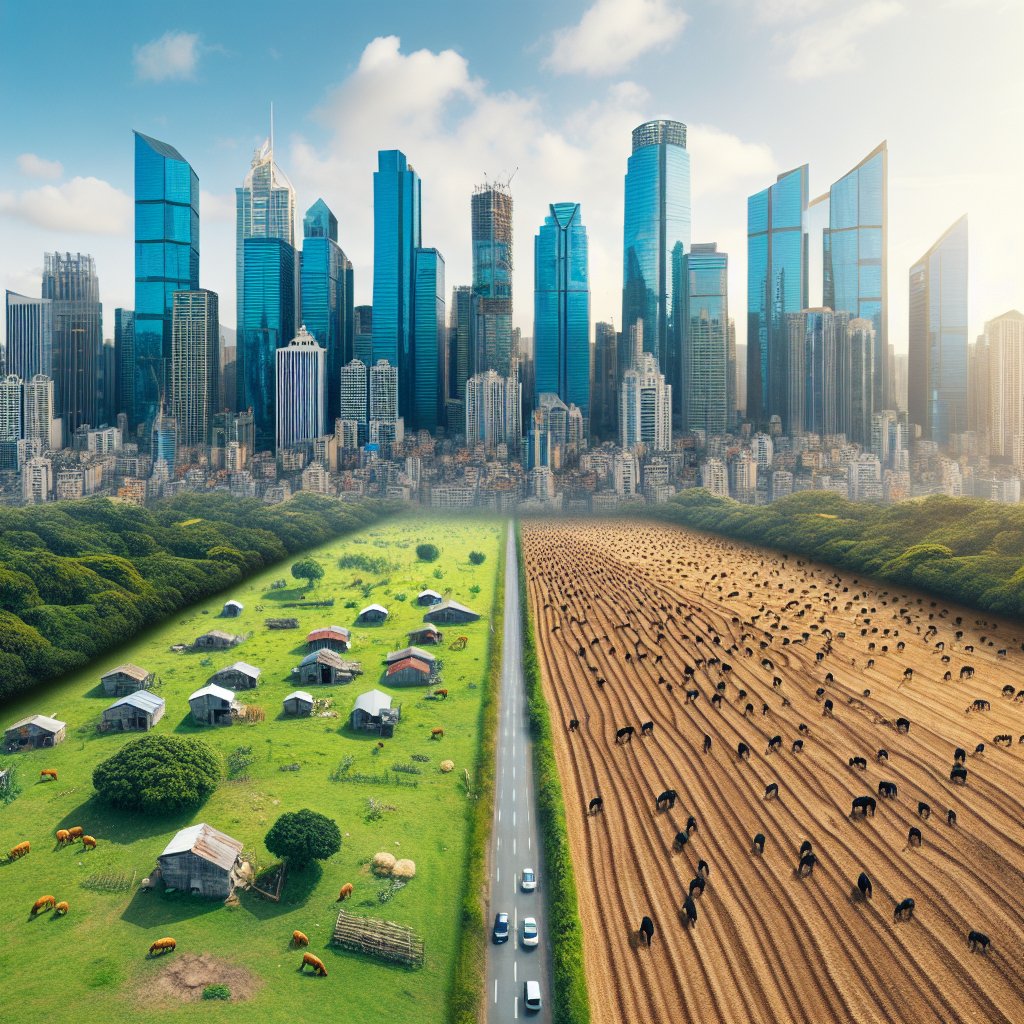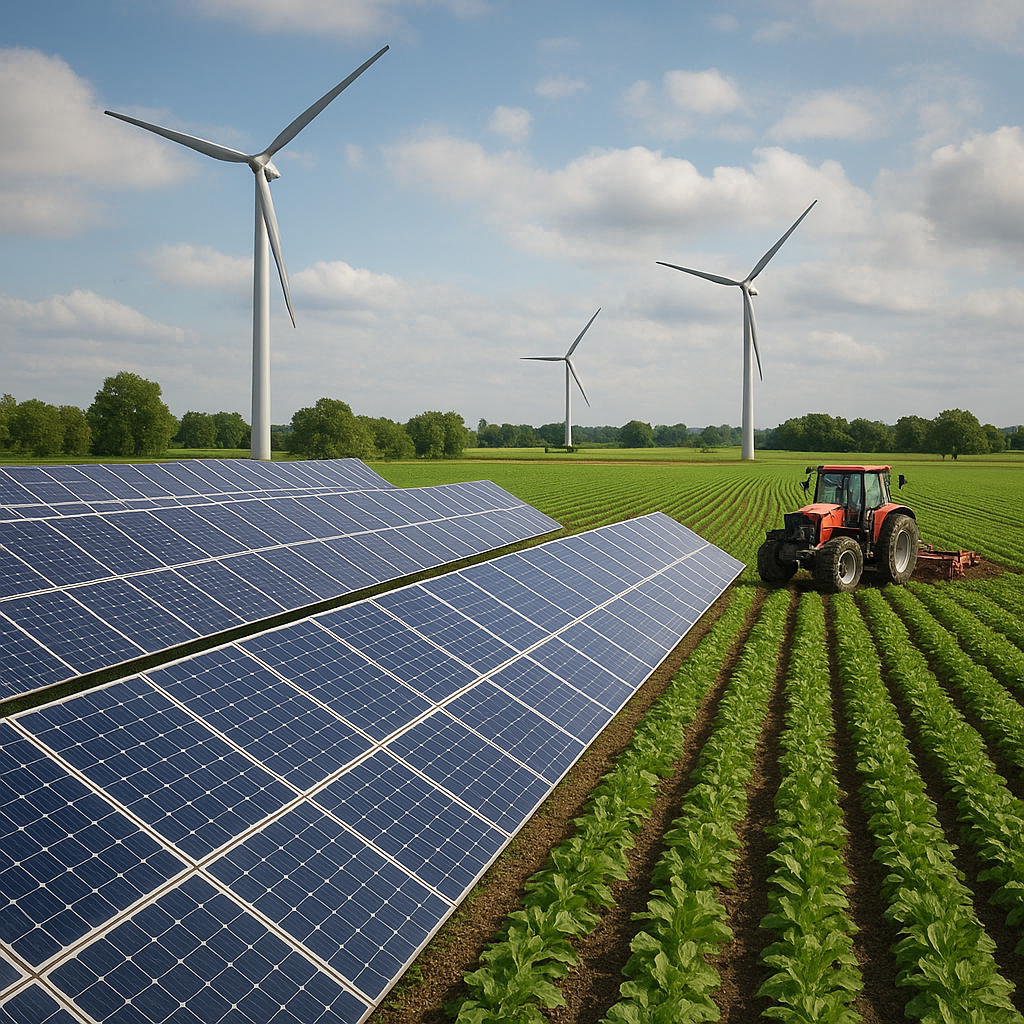The phenomenon of urbanization has profound implications for agriculture across the globe, reshaping landscapes, economies, and food systems. As more people migrate to urban areas in search of better opportunities, the relationship between cities and agriculture becomes increasingly complex. This article explores the multifaceted impacts of urbanization on agriculture, examining both the challenges and opportunities that arise in this dynamic interplay.
Urbanization Trends and Their Implications for Agriculture
Urbanization is a global trend that has accelerated over the past few decades. According to the United Nations, more than half of the world’s population now resides in urban areas, a figure projected to rise to 68% by 2050. This shift has significant implications for agricultural practices, land use, and food security.
Changing Land Use Patterns
As cities expand, agricultural land is often converted into residential, commercial, and industrial zones. This encroachment on farmland can lead to a reduction in the area available for food production, which poses a challenge for meeting the nutritional needs of growing urban populations. In many regions, particularly in developing countries, this loss of arable land is exacerbated by inadequate urban planning and governance.
- Loss of Arable Land: The conversion of agricultural land to urban use can lead to a significant decrease in food production capacity.
- Fragmentation of Agricultural Land: Urban sprawl often results in fragmented land parcels, making it difficult for farmers to operate efficiently.
- Increased Land Prices: As demand for land in urban areas rises, the cost of agricultural land can become prohibitive for farmers.
Impact on Food Security
The relationship between urbanization and food security is complex. While urban areas can provide access to diverse food sources, they also create vulnerabilities. Urban populations often rely on food that is transported from rural areas, making them susceptible to supply chain disruptions. Additionally, the loss of local agricultural production can lead to increased food prices and reduced access to fresh produce.
- Dependence on Food Imports: Urban areas may become reliant on food imports, which can be affected by global market fluctuations.
- Food Deserts: Some urban neighborhoods lack access to fresh and healthy food options, leading to health disparities.
- Rising Food Prices: Increased demand for food in urban areas can drive up prices, making it difficult for low-income residents to afford nutritious options.
Innovative Solutions and Opportunities
Despite the challenges posed by urbanization, there are also opportunities for innovation in agricultural practices. Urban agriculture, vertical farming, and community gardens are emerging as viable solutions to enhance food security and sustainability in urban settings.
Urban Agriculture
Urban agriculture refers to the practice of cultivating, processing, and distributing food within urban areas. This approach not only helps to mitigate the loss of agricultural land but also promotes local food production and consumption. Urban agriculture can take various forms, including rooftop gardens, community farms, and hydroponic systems.
- Rooftop Gardens: Utilizing unused rooftop space for gardening can increase local food production and improve urban biodiversity.
- Community Gardens: These shared spaces foster community engagement and provide access to fresh produce for urban residents.
- Hydroponics and Vertical Farming: Innovative farming techniques allow for food production in limited spaces, reducing the need for arable land.
Technological Advancements
Technological innovations are playing a crucial role in transforming urban agriculture. Advances in agricultural technology, such as precision farming, data analytics, and smart irrigation systems, can enhance productivity and sustainability in urban settings.
- Precision Agriculture: Utilizing data and technology to optimize farming practices can lead to more efficient use of resources.
- Smart Irrigation: Automated irrigation systems can conserve water and ensure that crops receive the right amount of moisture.
- Data Analytics: Analyzing data on weather patterns, soil health, and crop yields can inform better decision-making for urban farmers.
Policy and Governance
Effective policy and governance are essential for addressing the challenges of urbanization in agriculture. Policymakers must consider the needs of both urban and rural communities to create a balanced approach to land use and food production.
Integrated Urban Planning
Integrated urban planning that incorporates agricultural considerations can help mitigate the negative impacts of urbanization on food systems. This approach involves collaboration between urban planners, agricultural experts, and community stakeholders to create sustainable urban environments.
- Land Use Zoning: Implementing zoning regulations that protect agricultural land from urban encroachment can preserve vital food production areas.
- Support for Urban Agriculture: Providing incentives and resources for urban agriculture initiatives can promote local food production.
- Community Engagement: Involving local communities in decision-making processes ensures that policies reflect the needs and priorities of residents.
Food Policy and Security
Developing comprehensive food policies that address the unique challenges of urban areas is crucial for ensuring food security. These policies should focus on enhancing local food systems, supporting small-scale farmers, and promoting equitable access to nutritious food.
- Local Food Systems: Encouraging the development of local food networks can strengthen food security and reduce reliance on imports.
- Support for Small Farmers: Providing resources and training for small-scale farmers can enhance their capacity to contribute to urban food systems.
- Equitable Access: Ensuring that all urban residents have access to healthy food options is essential for addressing food disparities.
Conclusion
The impact of urbanization on agriculture is a multifaceted issue that requires a comprehensive understanding of the challenges and opportunities involved. As urban populations continue to grow, it is essential to develop innovative solutions that promote sustainable food systems and enhance food security. By embracing urban agriculture, leveraging technology, and implementing effective policies, cities can create resilient agricultural systems that benefit both urban and rural communities. The future of agriculture in an urbanized world depends on our ability to adapt and innovate in the face of change.



